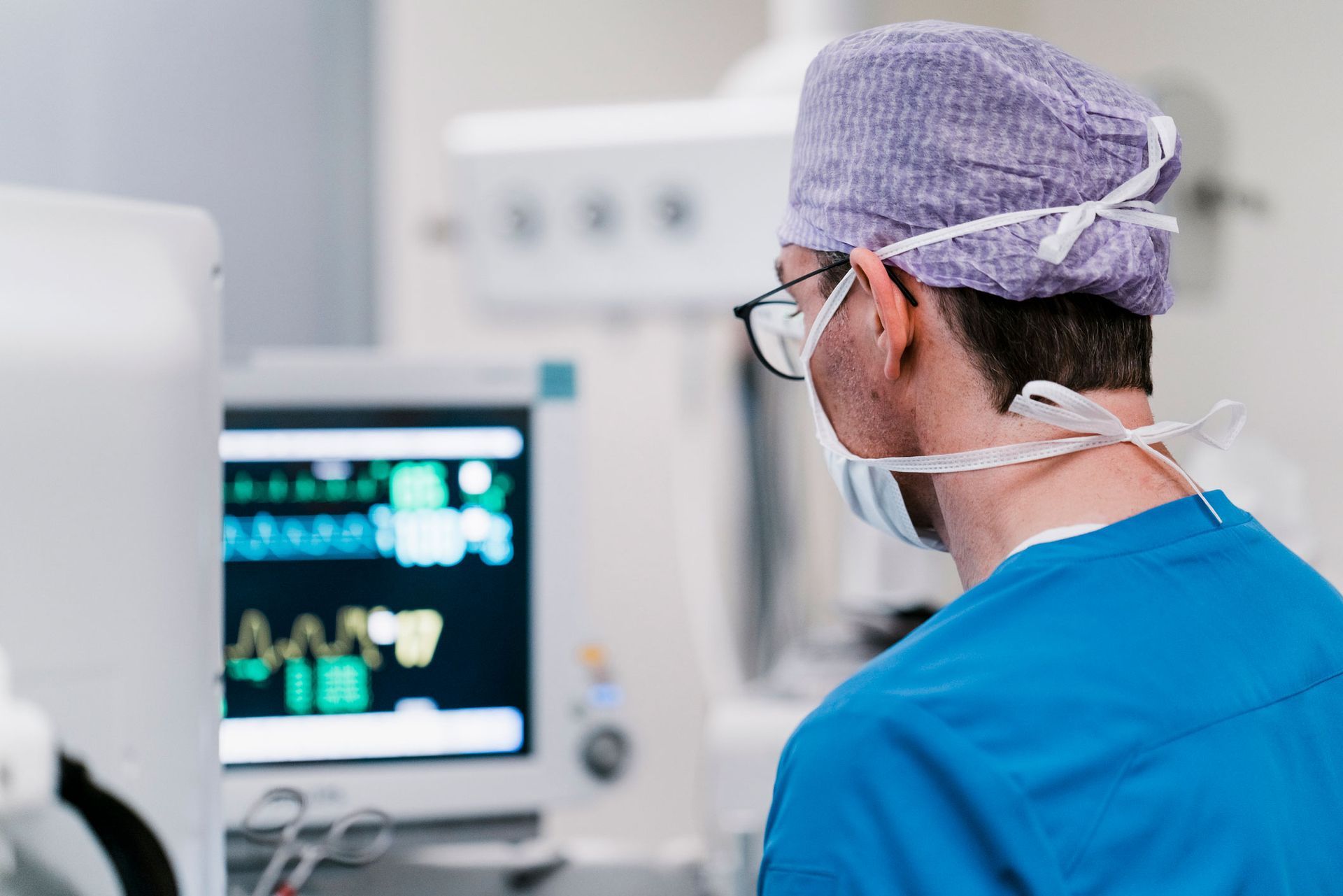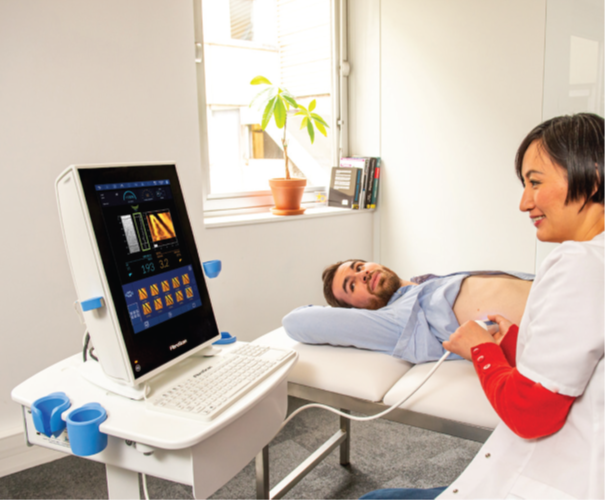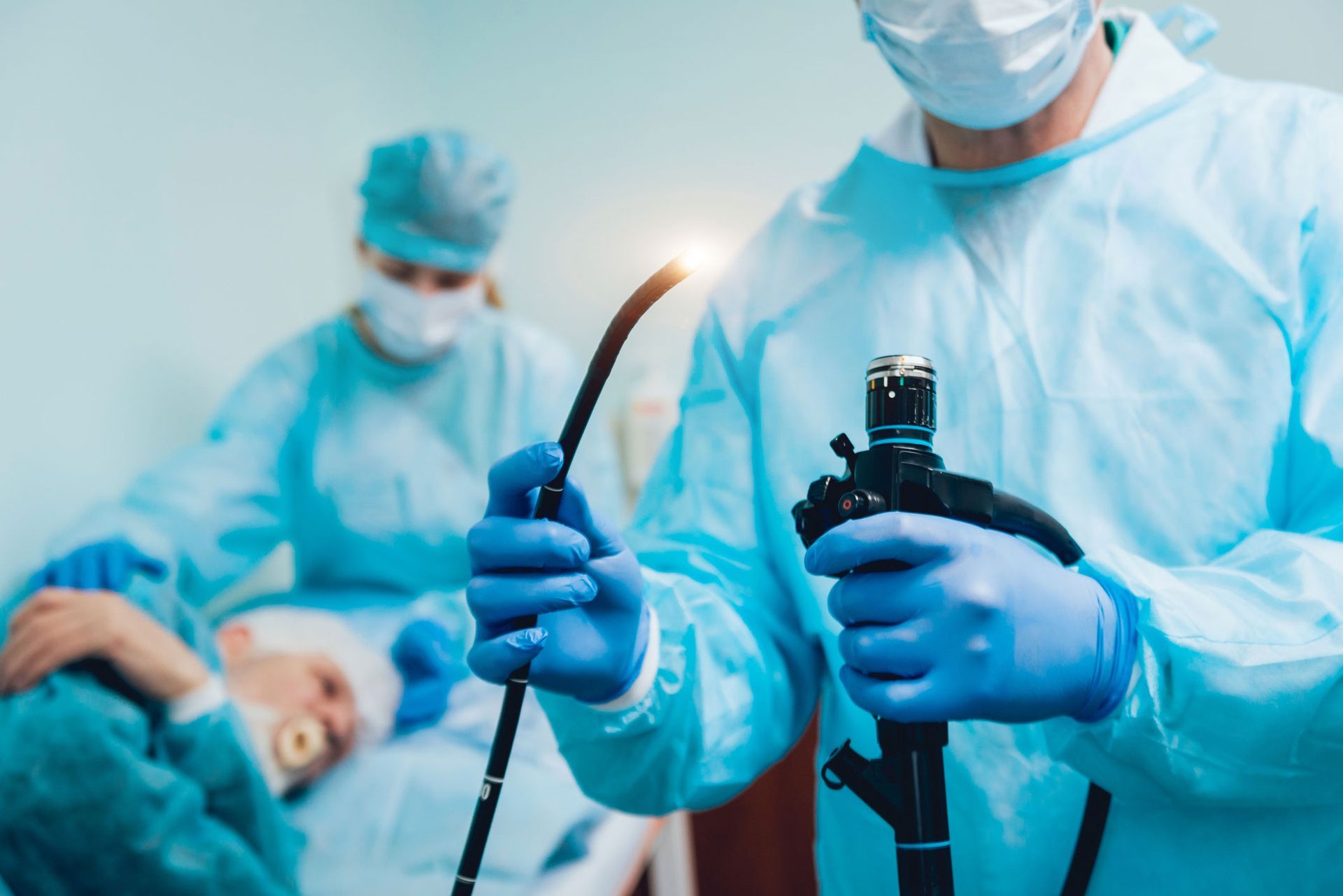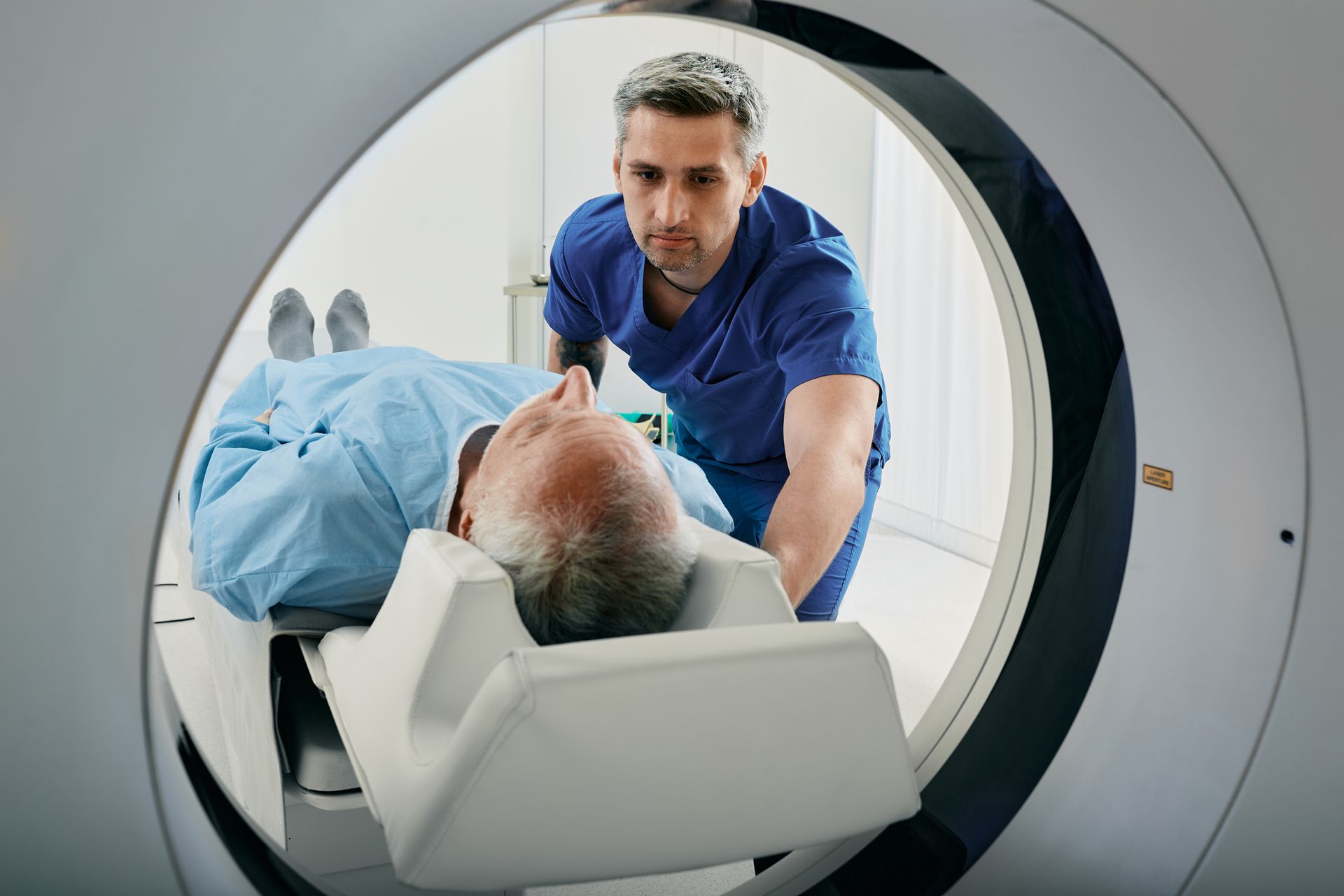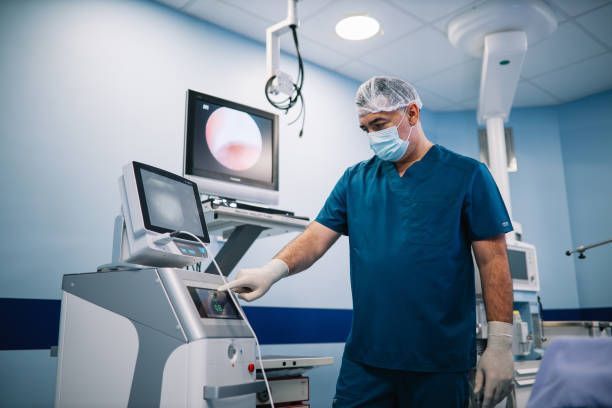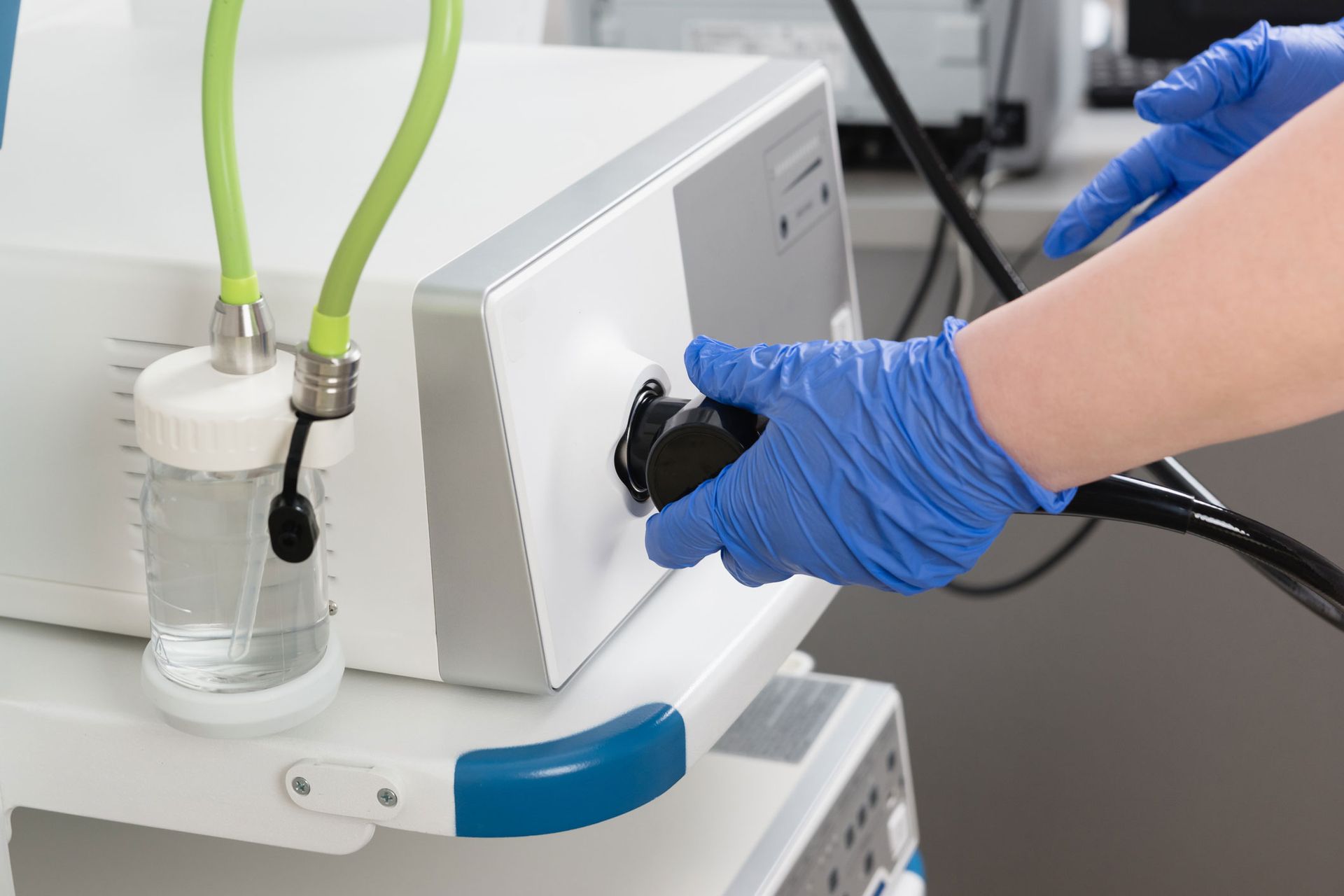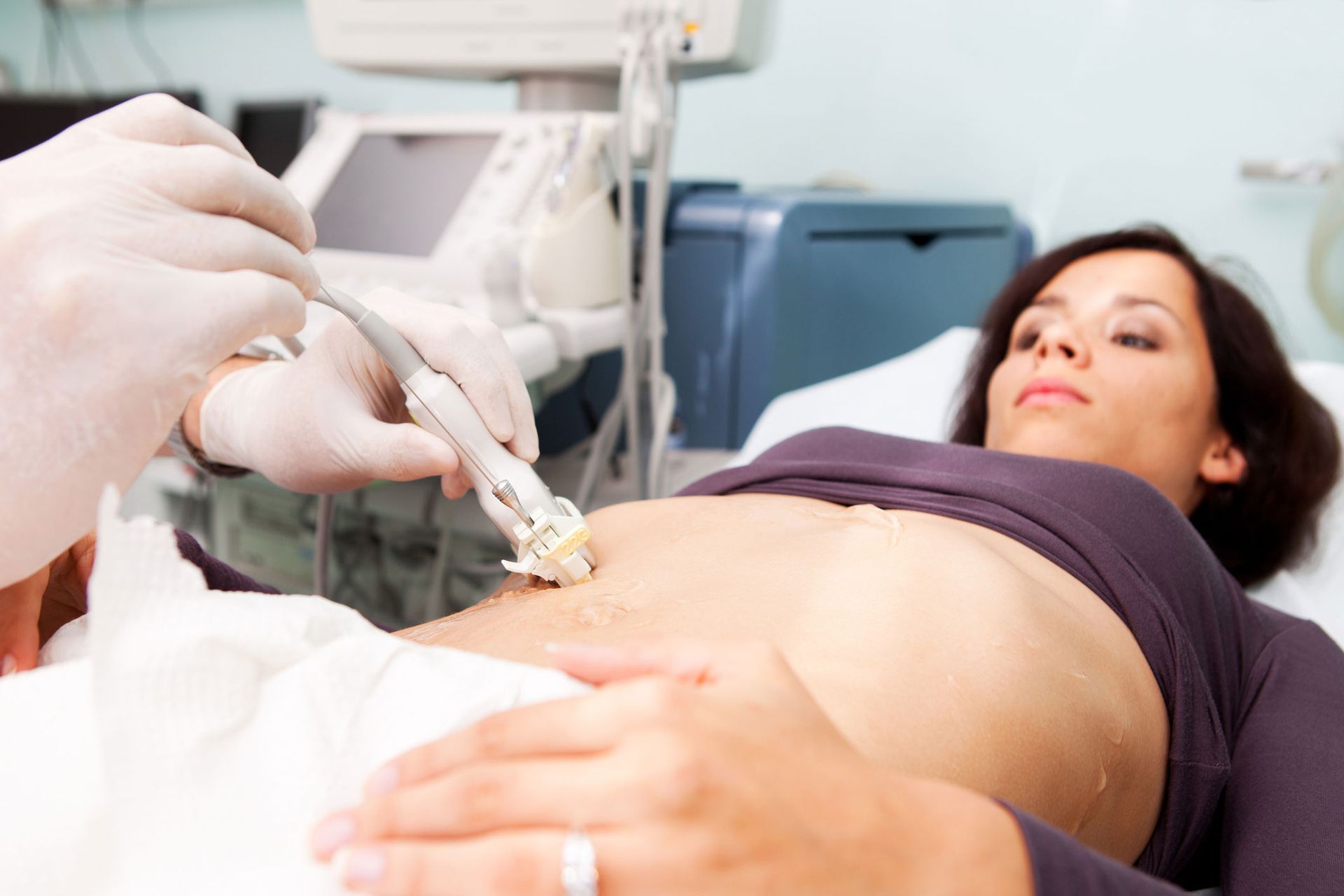ERCP (Endoscopic Retrograde Cholangiopancreatography)
What is ERCP?
ERCP is a procedure by which a flexible, lighted fiberoptic tube is passed through the esophagus (swallowing tube), stomach, and finally into the duodenum (first section of small intestine leading from the stomach). A small plastic tube (cannula) is passed through a tiny muscular opening (sphincter) that leads into the pancreatic and common bile ducts. Dye is injected through the cannula and x-rays are taken in order to study the ductal systems of the pancreas, bile ducts, liver, or gallbladder, depending upon which is being evaluated.
If anything unusual is seen during the procedure, a biopsy (small sample of tissue) can be obtained via the scope and sent to the laboratory for further evaluation. Biopsies are taken for many reasons and do not necessarily imply cancer.
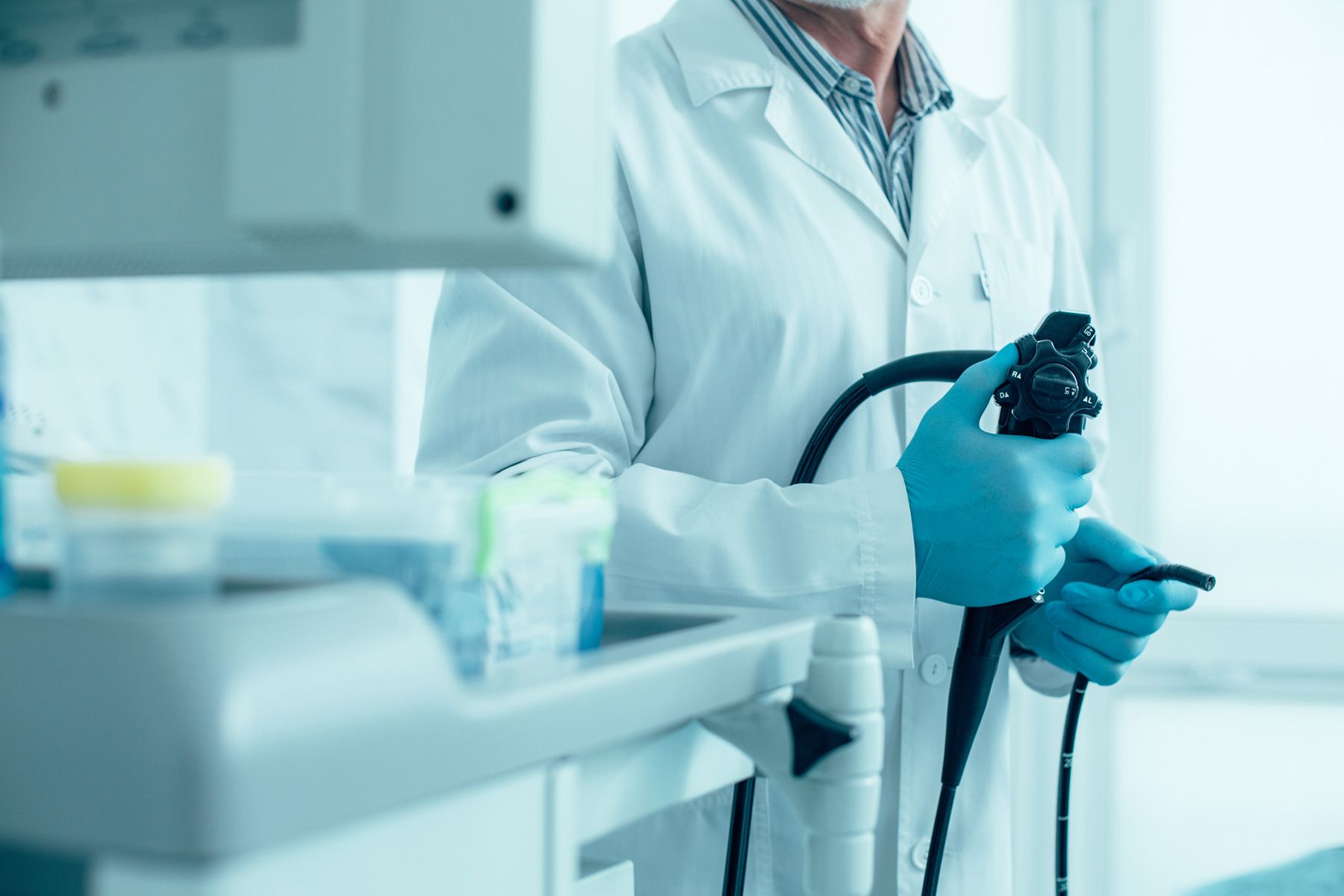
What are the reasons for performing ERCP?
ERCP is a valuable tool for the diagnosis of many diseases of the pancreas, bile duct, liver, and gallbladder. An abnormality suspected by clinical history, blood tests, or x-ray can be confirmed and studied in detail. The cause of an obstruction to the flow of bile may be found in a patient who is jaundiced. The diagnosis may be made in a patient who is not jaundiced when symptoms suggest disease of the bile ducts of the gallbladder. If a blocked duct is found, surgery may be required.
In patients with suspected or known pancreatic disease, ERCP will help to determine the need for surgery and the best type of surgical procedure to perform.
In the event a stone or blockage is found, an extension of ERCP may be performed. This is called Endoscopic Retrograde Sphincterotomy or simply ERS.
What is ERS?
A special cannula that has a cutting wire is passed through the tiny opening (sphincter) that leads into the common bile duct. The opening of this sphincter can be enlarged using this cutting wire. By enlarging the opening to the duct, small stones can pass from the duct and into the small intestine. These will be passed naturally and unnoticed along with the stool. Larger stones may be either crushed with special equipment or removed with a tiny balloon or wire basket.
Occasionally, a small tube (called a stent) will be placed in the bile duct and remain there to allow free drainage of the bile.
What preparation is required?
The best possible examination requires the stomach be completely empty. You should have nothing to eat or drink after midnight (including water) prior to the examination.
What should you expect during the procedure?
After you are admitted you will need to change into a patient gown and will be given a consent form to sign. A nurse will be available to discuss any questions or concerns.
What happens after ERCP?
You will remain in the facility until most of the effects of the sedation have worn off. You may feel bloated and might have a soft bowel movement because of the air and dye that were introduced during the examination.
You will be able to resume your normal diet after the examination, unless otherwise instructed.
Due to the sedation, you will not be allowed to drive home following the procedure. You will need to arrange for a companion to drive you home, and who will remain in the building while you are here. Even though you may not feel tired, your judgment and reflexes may not be normal.
If ERS is necessary, admission to the hospital will be required for observation.
Are there any complications from ERCP?
ERCP is safe and is associated with very low risk when performed by physicians who have been specially trained and are experienced in this highly specialized procedure. Complications can occur but are uncommon.
One possible complication is pancreatitis due to irritation of the pancreatic ducts by the x-ray contrast material (3-4%). Another possible complication is infection, particularly if ERS is performed since a cut has been made.
Other less common risks include perforation (tear) of the bowel, drug reactions, and complications from unrelated diseases such as heart attack or stroke.
Death is extremely rare, but remains a remote possibility.
ERCP is an extremely worthwhile procedure and is well tolerated. The decision to perform ERCP was based upon assessment of your particular problem.
If you have any further questions or concerns, your doctor and/or his staff will be happy to discuss them with you.
IMPORTANT REMINDER:
This information is intended only to provide general guidance. It does not provide definitive medical advice. It is very important that you consult your doctor about your specific condition.
